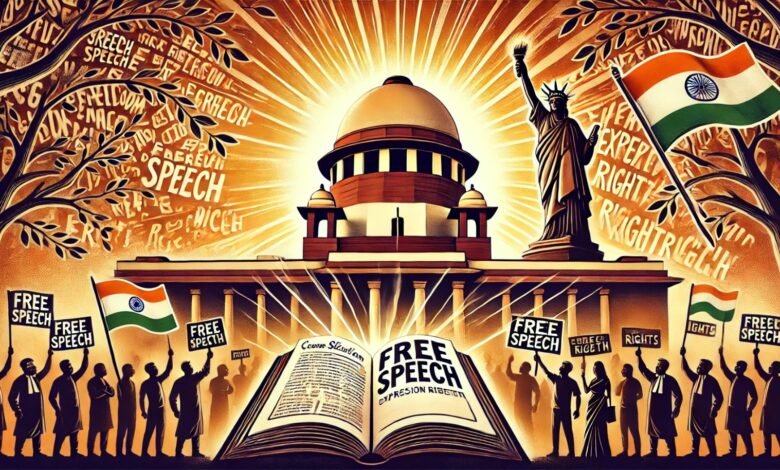Supreme Court’s ruling on free speech a win for democracy
By Doruvu Paul Jagan Babu: Assistant Chief Editor

Delhi: The Supreme Court’s decision to quash an FIR against Congress MP Imran Pratapgarhi for his Instagram poem reaffirms the sanctity of free expression, setting a powerful precedent for protecting dissent in India.
On Friday, the Supreme Court delivered a landmark judgment, quashing an FIR filed by Gujarat Police against Congress Rajya Sabha MP Imran Pratapgarhi over his Instagram post featuring the poem “Ae khoon ke pyase baat suno.” Reported by LiveLaw, this ruling by Justices Abhay Oka and Ujjal Bhuyan is a clarion call to safeguard freedom of speech—a cornerstone of India’s democracy. It is a timely reminder that dissent, however unpopular, must be protected, not persecuted.
A poetic victory: FIR quashed
The Gujarat Police had charged Pratapgarhi under Section 196 of the Bharatiya Nyaya Sanhita, alleging his poem incited unrest. The Supreme Court, however, found no offence, emphasizing that free expression is vital for a “dignified life” under Article 21. Justice Oka’s words, as quoted by LiveLaw, resonate: “Literature including poetry… make the life of human beings more meaningful.” This is not just a win for Pratapgarhi—it is a win for every artist daring to speak.
Courts as guardians: Upholding rights over bias
The bench did not mince words, subtly rebuking the Gujarat High Court for not quashing the FIR earlier. “Sometimes we the judges may not like the spoken or written words, but still, it is our duty to uphold the fundamental rights,” Justice Oka stated, per LiveLaw. Constitutional courts, the judgment insists, must “zealously protect” rights under Article 19(1). This directive is a wake-up call—judges are not arbiters of taste; they are defenders of liberty, even when the words sting.

Police on notice: Respect the Constitution
The ruling also puts police on notice. The Gujarat Police’s “overzealous” FIR drew sharp criticism: “Police officers… are bound to uphold the right” to free expression, the Court said, citing the Constitution’s preamble on liberty of thought. LiveLaw notes the Court’s standard—words must be judged by “reasonable, strong-minded” individuals, not the insecure or power-hungry. This isn’t just a slap on the wrist; it’s a demand for constitutional fidelity from those in uniform.
A broader lesson: Democracy thrives on dissent
This judgment is not about one poem—it is about India’s soul. The Court’s stance, that effects of speech cannot be gauged by “people with weak and oscillating minds,” is a rebuke to thin-skinned authorities. In a democracy, dissent is not a threat; it is oxygen. As the Court noted, per LiveLaw, free expression is “the most important right” in a liberal democracy. India’s institutions—courts, police, governments—must heed this: silencing voices does not protect power; it erodes legitimacy.
Looking ahead: A call to action
The Supreme Court has set the bar—now it is on us. Citizens must speak, artists must create, and authorities must listen, not lash out. Pratapgarhi’s case is not an end; it is a beginning. Let us ensure India’s democracy does not just survive but thrives, one bold word at a time.








